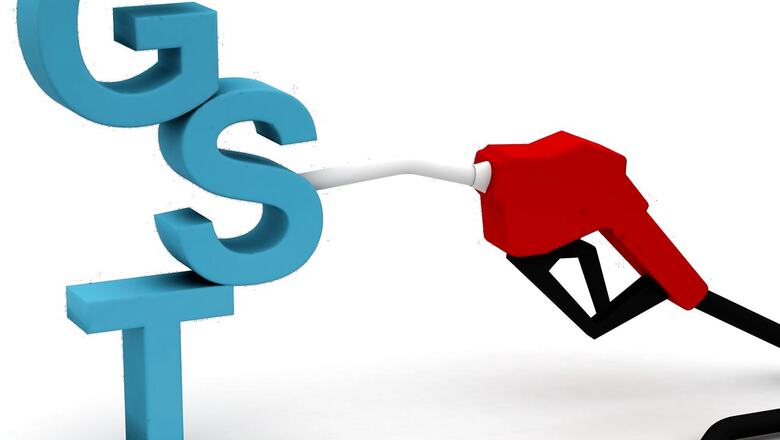
views
The 45th GST Council meeting slated to happen on Friday is all set to take some issues for discussion. This first physical meeting ever since Covid-19 pandemic hit us will happen in Lucknow. One of the most talked about proposals is the government’s intent to treat food delivery apps such as Zomato and Swiggy as restaurants and levy 5 per cent GST on supplies made by them. With this decision getting passed, the prices of food are bound to witness an uptick, the business daily The Economic Times said. As per estimates, tax loss to exchequer due to alleged under-reporting by food delivery aggregators is Rs 2,000 crore over the past two years. Apart from this proposal, another proposal that is attracting a lot of eyeballs is the inclusion of petrol /diesel under the GST.
“Proposal to include e-commerce companies like Zomato and Swiggy in the definition of restaurant services — it should be carefully considered and discussed with industry in detail before implementation. The preposition may look good from ease of administration side but could lead to issues in compliance for the restaurants and e-commerce companies. How will the small eateries continue with their exemptions or who will claim the ITC of inputs are few important aspects to be kept in mind,” said Jatin Arora, Partner, Phoenix Legal
The GST Council might on Friday consider taxing petrol, diesel and other petroleum products under the single national GST regime, a move that may require huge compromises by both central and state governments on the revenues they collect from taxing these products. In June, the Kerala High Court, based on a writ petition, had asked the GST Council to decide on bringing petrol and diesel within the goods and services tax (GST) ambit. These intractable prices of the petrol and diesel is pushing the government and GST council to give a second thought to this idea.
“Rising petrol and diesel prices are a concern of consumers, industry and government. Primary reason for such high prices is due to centre and state taxes imposed on petrol and diesel. The Centre and state government has been trying to bridge their tax collection deficit by taxing petrol and diesel at very high rates,” Maneet Pal Singh , Partner, IP Pasricha & Co said.
However, the prices of petrol and diesel had remained unchanged for 11 days in a row. Currently, in the national capital, petrol prices were steady at Rs 101.19 per liter and diesel rates were constant at Rs 88.62 per liter.
“It is recommended that the GST council should accept the recommendation of industry to include Petrol and Diesel under GST. If this happens it will simplify tax structure, bring efficiency in the system, reduce tax burden on consumers and make companies competitive,” Pal said. In addition to petrol and diesel, the GST council will also consider raising the GST rate on packaged edible oil from 5 per cent to 18 per cent. This proposal is witnessing a backlash from the industry as edible oil is at an all-time high rate.
There has been speculation that GST on edible oil could increase. The GST fitment Committee has recommended a rate hike 18 per cent from 5 per cent on packed edible coconut oil, according to sources. “The irrationality in the approach is evident as a hike of two slabs is being proposed in one go (unlike in history) . Moreover this proposal focuses on an identified type of edible oil in isolation of others. Hoping the Council takes a much more calibrated approach in its decision-making and letting rationality supersede,” Adarsh Somani, partner, Economic Laws Practice said.
Read all the Latest News , Breaking News and Ukraine-Russia War Live Updates here.




















Comments
0 comment